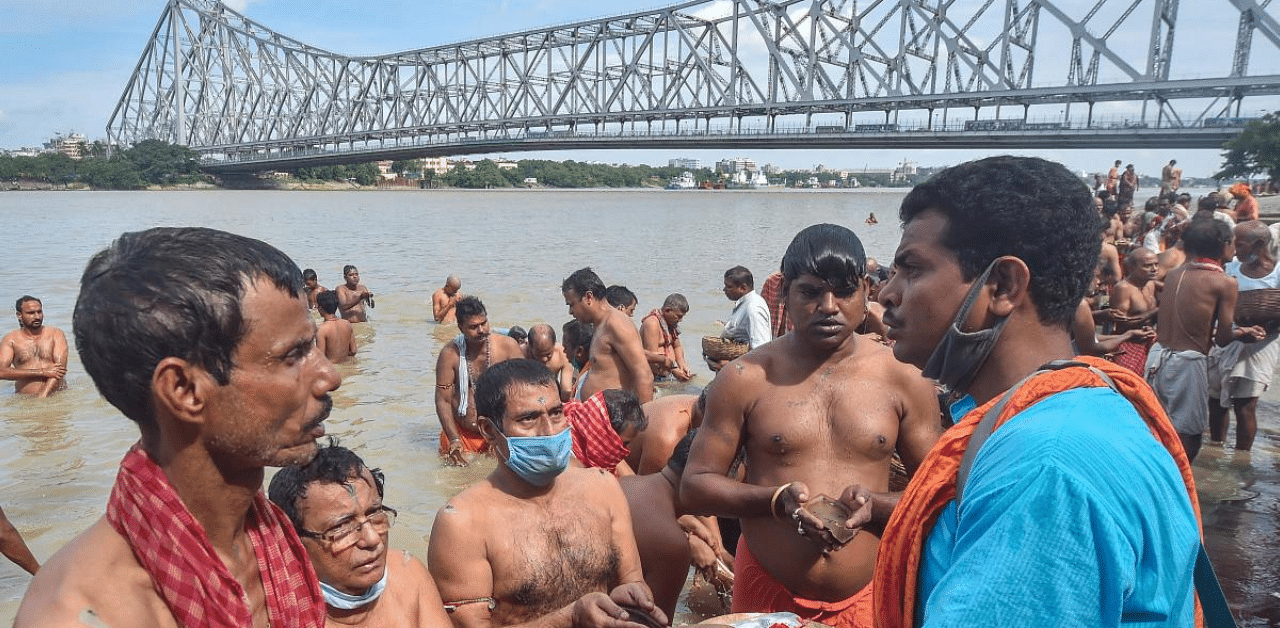
Lakhs of people offered 'tarpan' on the auspicious Mahalaya across West Bengal on Thursday, while Durga Puja festivities this year are going to start more than a month later in an unusual departure from the traditional seven-day gap.
The day started with lakhs of people paying obeisance to their forefathers on the banks of Hooghly and other rivers and water bodies across the state amid the Covid-19 pandemic.
The early morning rendition of Mahishasur Mardini -- a collection of shlokas and songs dedicated to Goddess Durga -- was aired on the All India Radio (AIR), marking the beginning of the festive season.
Mahishasur Mardini was first broadcast as a live programme on AIR in the early 1930s. Since then it has become a Mahalaya morning 'ritual'.
River traffic police kept a strict vigil along the various ghats of Hooghly to prevent any untoward incident. Adequate security measures have been taken at the 18 ghats in Kolkata where devotees are offering 'tarpan', officials said.
With the day marking the end of Pitri Pakshya, elders of the family paid homage to their ancestors by performing tarpan, a ritual in which water is offered to the ancestors souls.
Senior officers of Kolkata Police have been posted at the ghats while civic police volunteers have been deployed to manage social distancing.
Vehicular movements on the roads around the ghats have also been restricted, police said.
Similar scenes were seen in the other districts with lakhs of people gathering on the banks of rivers and ponds to pay obeisance to their forefathers.
On Mahalaya, the sculptors usually draw the eyes of Devi Durga, a ritual known as 'Chokhhu Daan'. However, it did not happen this year as Durga Puja starts over a month later.
Durga Puja will begin on October 22 instead of the traditional seven-day gap from Mahalaya as the Bengali month of Kartik starting on Friday is a 'mala mash' or lunar month, considered inauspicious for any religious or social festivity.
The Bishwakarma Puja, which is traditionally celebrated every year on September 17, has coincided with the Mahalaya this time.
Lord Bishwakarma, the divine architect as per the Hindu mythology, is being worshipped in a much smaller scale across the state this year in the wake of the Covid-19 pandemic.
Lord Bishwakarma is usually worshipped in factories, industrial units and by transporters across the state.